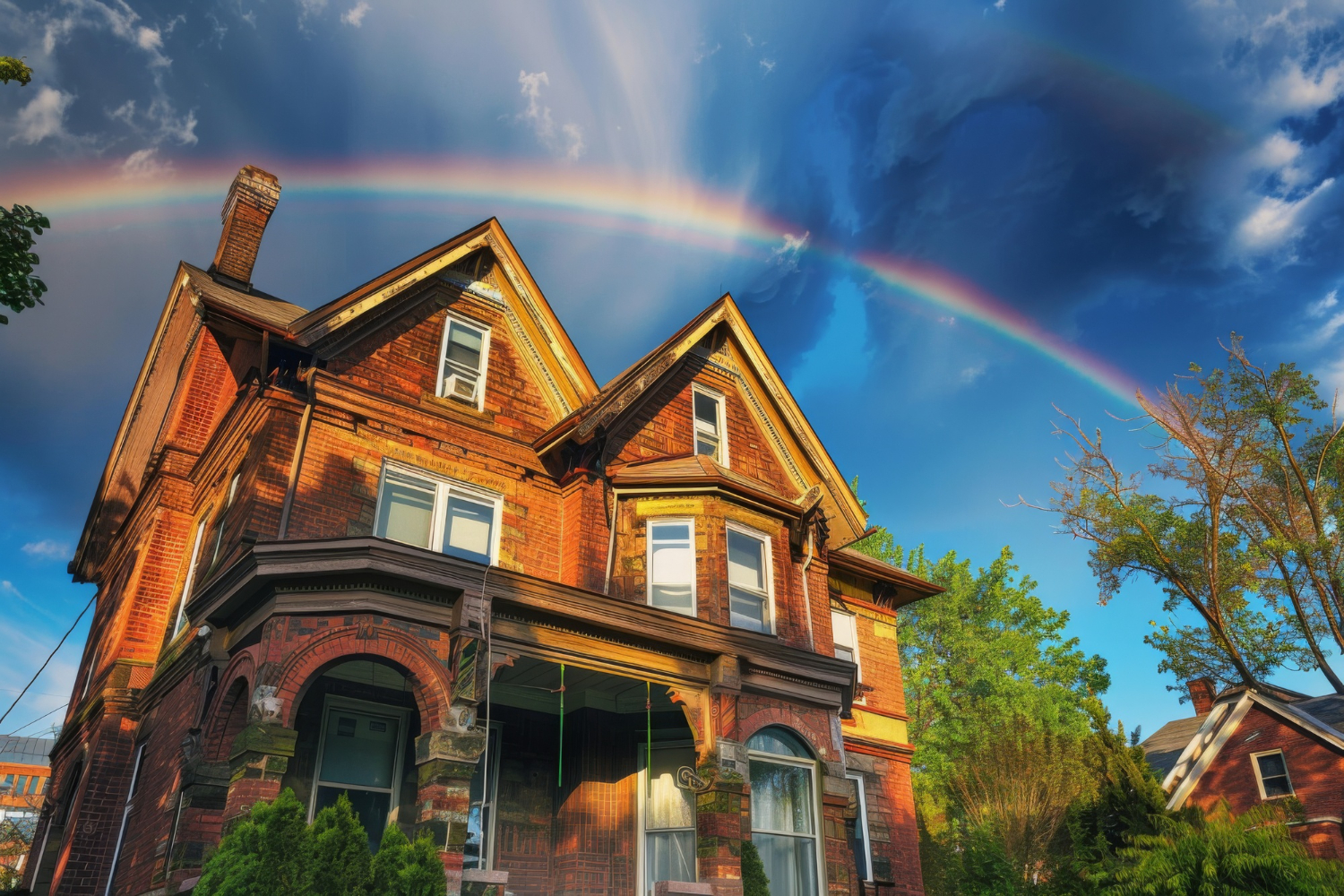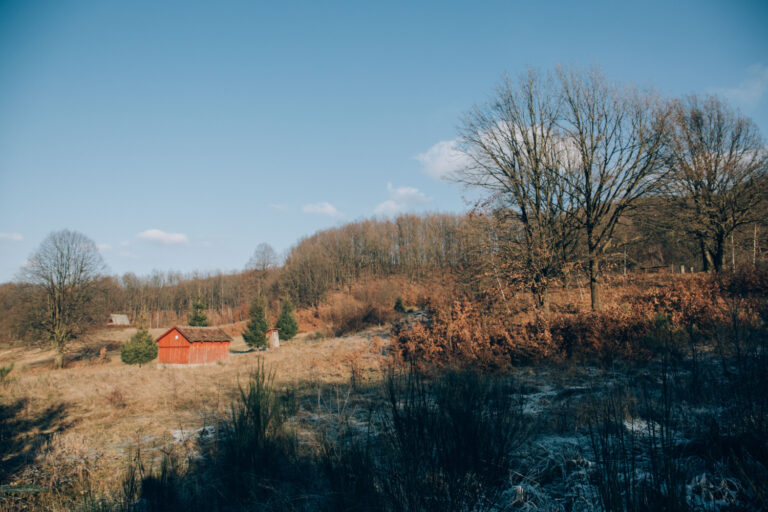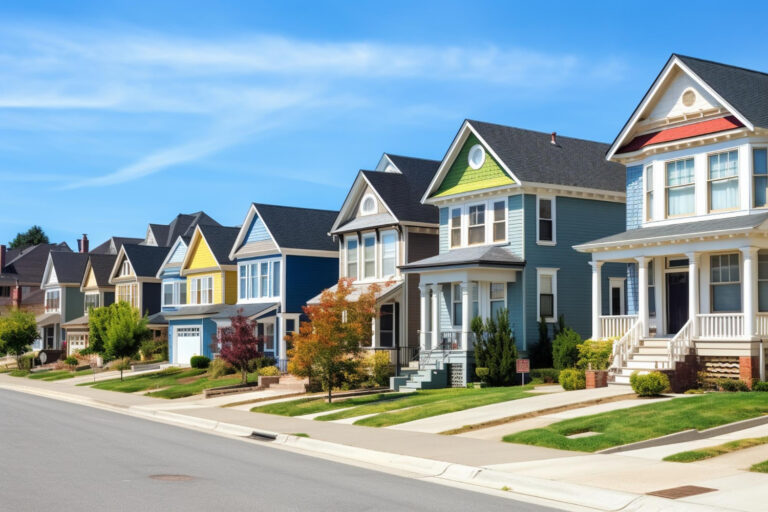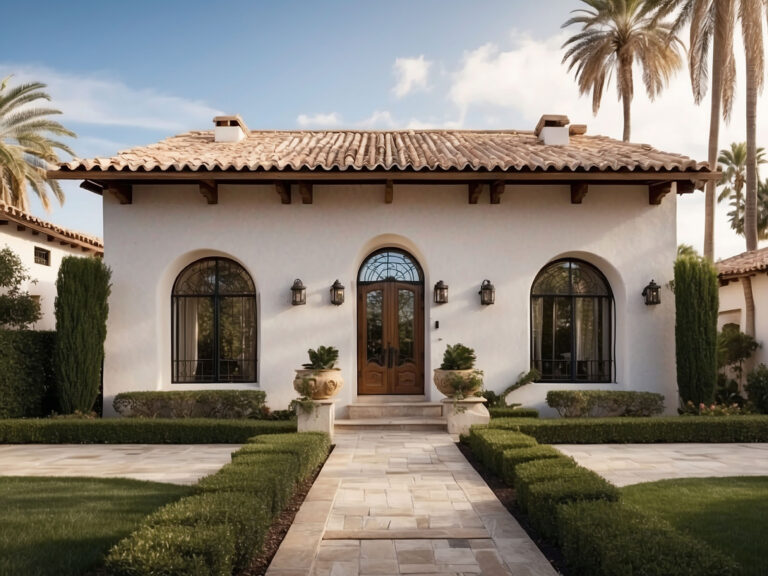The Ultimate Guide to the Softwashing Process For Bristol(2024)
The Ultimate Guide to the Softwashing Process For Bristol(2024)
Introduction:
Did you know improper cleaning can knock up to 10% off your home's value? I certainly didn't until I started researching the best ways to keep my Bristol home looking spick and span. In our quirky Bristol climate, picking the right cleaning softwashing process for Bristol method isn't just about making your house look pretty – protecting your investment!
So, let me introduce you to this game-changer I discovered: soft washing. It's like the gentle giant of cleaning methods, and it's a relief for our Bristol homes. I remember the first time I heard about it: “Soft? How's that gonna get rid of all the grime?” But boy, was I in for a surprise! It's a solution that takes the stress out of home maintenance.
In this guide, I'll walk you through the entire soft washing process, from start to finish. We'll cover why it's so brilliant for Bristol properties, the step-by-step process (which, I'll admit, I messed up royally the first time I tried it), and even the science behind why it works so well in our damp climate. By the end, you'll be a soft washing pro—or at least know enough to impress your neighbors at the next street party!
What is Softwashing, and Why is it Perfect for Bristol Homes?
Alright, let's get down to brass tacks. Softwashing is basically the gentle giant of the cleaning world. It's like that big, burly friend who looks intimidating but is actually a total softie. Instead of blasting your home's exterior with high-pressure water (which, let me tell you, can do more harm than good), soft washing uses low-pressure water combined with specialized cleaning solutions to kill and remove all the nasty stuff growing on your walls.
Now, why is this so perfect for our lovely Bristol homes? Well, let me tell you a story. I decided to pressure wash my Victorian terrace house a few years back. It was a big mistake—huge. I chipped paint, damaged mortar, and even forced water under my siding. It was a disaster! That's when I learned that our unique Bristol architecture, with its mix of old and new buildings, needs a gentler touch.
Our climate here in Bristol is, well, let's call it “enthusiastically damp.” We've got more rainy days than I care to count, and that moisture creates a perfect breeding ground for algae, mold, and mildew. Softwashing is like kryptonite for these organisms. It doesn't just clean them off; it actually kills them at the root. And the best part? It keeps your home cleaner for longer.
But here's the kicker—soft washing isn't just about cleaning. It's about preserving. Our beautiful Bristol homes, whether they're modern builds or historic gems, deserve to be treated with care. Softwashing provides this care by being gentle enough to use on delicate surfaces like painted wood or old brickwork. It's effective enough to make your home look like it just stepped out of a time machine, but it won't cause the damage that high-pressure washing can.
I'll never forget the look on my neighbor's face when she saw my house after its first soft wash. “Blimey,” she said, “I thought you'd gone and bought a new house!” That's the power of soft washing, folks. It doesn't just clean; it transforms. It's like giving your home a makeover, and who wouldn't be excited about that?
So, if you're tired of fighting a losing battle against green algae streaks or worried about damaging your home's exterior, softwashing might be your new best friend. However, it's important to note that soft washing, like any cleaning method, carries some risks. Always follow safety guidelines and consider consulting a professional if you're unsure. Trust me, your Bristol home will thank you for it!
The Step-by-Step Softwashing Process for Bristol Properties
Alright, buckle up because I will take you through the softwashing process. And let me tell you, it's been quite the learning curve for me!
Step 1: Pre-treatment Inspection First, you've got to give your house a good once-over. I learned this hard when I missed a wasps' nest hidden under my eaves. Let's say the wasps were not thrilled about their surprise shower! So, take your time and look for any damaged areas, nests, or delicate spots that might need special attention.
Step 2: Preparing the Area This is where you channel your inner Boy Scout and get prepared. Cover your plants (they don't enjoy a chemical bath), move outdoor furniture, and close all your windows. I once forgot to close my bathroom window and ended up with a very clean but very wet toilet roll. Not my finest moment!
Step 3: Mixing the Cleaning Solution Now is different from mixing a gin and tonic (although you might want one after you're done). The cleaning solution needs to be just right. Too weak, and it won't do the job. Too strong, and you might end up bleaching your brick. I use a biodegradable solution that's tough on grime but gentle on the environment. Because let's face it, we've got enough pollution in the Avon without adding to it!
Step 4: Application Techniques This is where the magic happens. You'll apply the solution from bottom to top using a low-pressure sprayer. Why is it from bottom to top? I learned the hard way that if you go top to bottom, the solution runs down the dry areas and can leave streaks. It's like trying to paint a wall upside down – messy and ineffective!
Step 5: Dwell Time Now, patience is key here. The solution needs time to work its magic. This is a great opportunity to have a cuppa and admire your handiwork. Don't get too comfortable – you don't want to leave it on for too long. I once got distracted by a gripping episode of Bargain Hunt and left it on for an hour. Let's say my window frames were not impressed.
Step 6: Rinsing Process Time to wash it all away! Using low pressure (remember, we're being gentle here), rinse from top to bottom. It's like washing your hair but for your house. And the satisfaction of seeing all that grime wash away? Better than any spa day, I tell you!
Step 7: Post-treatment Inspection Finally, could you give your house another look-over? Ensure you haven't missed any spots (I always seem to miss a bit behind the drainpipe), and check for any areas that might need more attention. It's the final step in your diligent home maintenance routine.
And there you have it! The softwashing process is in all its glory. It might seem like a faff, but trust me, the results are worth it. Your Bristol home will be gleaming like a new pin, and you'll be the envy of the street. Don't be surprised if your neighbors ask you for tips – you're a softwashing expert now!
Essential Equipment and Solutions Used in Bristol Softwashing
Let's talk tools of the trade, shall we? When it comes to soft washing in Bristol, having the right equipment is like having the right umbrella—absolutely essential. Trust me, I learned this the hard way after my first attempt with a garden sprayer and some washing-up liquid. Spoiler alert: it didn't end well.
First up, let's chat about pumps and nozzles. Now, I'm not talking about your average garden hose here. For softwashing, you need a low-pressure pump system. I use one that operates at about 60 PSI – strong enough to get the job done but gentle enough not to strip the paint off your Victorian terrace. And nozzles? They're like the magic wands of softwashing. I've got a variety, from wide-fan nozzles for large areas to pinpoint nozzles for those tricky corners where the Bristol grime loves to hide.
Now, onto the cleaning solutions—and this is where things get a bit scientific. We're not just talking about soap and water here. The best soft-washing solutions are biodegradable and designed to kill algae, mold, and mildew. I use a solution that mixes surfactants (that's fancy talk for soap), algaecides, and suitable old sodium hypochlorite. It sounds scary, but it's entirely eco-friendly when used correctly.
But here's the kicker—the mixing ratios are crucial. Too strong, and you might end up giving your house an unintended bleach job. Too weak, and you'll be out there scrubbing like it's 1950. I've got a little notebook where I keep my ‘recipes' for different surfaces. My neighbors think I'm writing a novel, but it's my soft-washing secrets!
Now, let's talk safety because this isn't a job for your birthday suit (trust me, I've got the sunburn to prove it). You'll need goggles, gloves, and protective clothing. I learned this lesson after my first soft washing attempt left me looking like I'd had a fight with a bottle of bleach—and lost.
Oh, and don't forget about protecting your garden! I use plastic sheeting to cover my prized hydrangeas. The first time I softwashed, I forgot this step. Let's just say my flowers got an unintended makeover, and my wife wasn't pleased.
Remember, soft washing might seem like spraying your house, but it's an art form. You'll turn your Bristol home from grimy to gleaming with the right equipment and solutions. Don't be surprised if your neighbors ask you for your secret recipe!
The Science Behind Softwashing: Why it Works So Well in Bristol
It's time to put on our lab coats and dive into the nitty-gritty of why soft washing is like kryptonite for all the gunk on our Bristol homes. Don't worry; I promise not to get too ‘Bill Nye the Science Guy' on you – although I did consider buying a bowtie for this section between you and me.
So, here's the deal: Bristol's climate is enthusiastically moist. We've had more rainy days than I've had hot dinners, creating a perfect breeding ground for algae, mold, and mildew. These tiny troublemakers love shopping on our walls, roofs, and patios.
Now, here's where the magic of soft washing comes in. The cleaning solution we use isn't just soap—it's a carefully concocted mixture designed to annihilate these microscopic squatters. The key ingredient is usually sodium hypochlorite (that's posh talk for bleach), but before you start grabbing the bottle from under your sink, hold your horses!
The soft washing solution is much more diluted and combined with surfactants (a fancy word for soap) and other goodies that help it stick to surfaces. When we apply it to your home, it doesn't just clean the surface—it actually penetrates into all the nooks and crannies where these organisms live.
Here's the really cool part: the solution doesn't just kill the visible stuff; it gets right down to the roots and spores. It's like weeding your garden – it'll grow back if you don't get the roots. That's why pressure washing alone often doesn't cut it in our damp Bristol climate.
But why is this so effective in Bristol specifically? Our lovely city's mix of old and new buildings, combined with our damp climate, creates a unique challenge. Softwashing is gentle enough for historic stone buildings but effective enough to combat persistent moisture.
I remember when I first learned about this. I was chatting with my neighbor, moaning about the constant battle with green algae on my north-facing wall. He suggested soft washing, and I'll admit, I was skeptical. But after seeing the results—and, more importantly, how long they lasted—I was converted.
Soft washing really shines in its long-term benefits. Because it kills the organisms at the root, your home stays cleaner for longer. I used to have to clean my patio every spring, but after soft washing, it stayed clean for nearly two years! It's like the gift that keeps on giving.
So there you have it—the science behind why soft washing works so well in our beloved Bristol. It's not just about making your house look pretty (although it definitely does that, too). It's about smart, effective cleaning with our unique climate and architecture. Who knew cleaning could be so fascinating? Well, I did, but my wife says that's why I don't get invited to many parties!
Joint Surfaces Suitable for Softwashing in Bristol
Alright, let's talk surfaces! You might be surprised at just how versatile soft washing can be. When I first discovered it, I thought it was just for siding. Boy, was I in for a treat! It's like the Swiss Army knife of cleaning methods for our Bristol homes.
First up, vinyl siding. Now, I know not all of us in Bristol have vinyl siding, but for those who do, soft washing is an absolute game-changer. I remember the first time I soft-washed my cousin's vinyl-clad house. It was so green that I thought he was trying to camouflage it! After soft washing, it looked brand new. The neighbors thought he'd had it replaced!
Now, onto brick and stone. This is where softwashing really shines in Bristol. Our city has some gorgeous brick and stone buildings, but they can look a bit worse to wear after a few years of our ‘lovely' weather. Softwashing gently cleans these surfaces without damaging the mortar or eroding the stone. I once tried pressure washing my stone garden wall – let's just say it now has a very
‘rustic' look that wasn't quite what I was going for. Softwashing, however, cleaned it up beautifully without turning it into a modern art installation.
Roofs are another surface where softwashing works wonders. Bristol's a mix of roof types, from traditional slate to modern tiles. I'll never forget when I climbed up to clean my roof with a scrub brush. Two hours later, I had a clean patch the size of a dinner plate and a back that felt like I'd wrestled a gorilla. Softwashing gets the job done without the acrobatics, and it's gentle enough for even the most delicate tiles. The relief from the physical strain of manual cleaning is a welcome change for any homeowner.
Decks and fences are also prime candidates for soft washing. Our damp Bristol weather can turn a lovely wooden deck into a slippery, green nightmare faster than you can say “barbecue.” I learned this the hard way when I hosted a summer party, and my guests were slip-sliding around like it was an ice rink. After soft washing, my deck looked like new, and more importantly, no one needed a crash helmet to walk on it.
Driveways and pathways are often overlooked, but they can really benefit from a good soft wash. I used to spend hours jet-washing my driveway every spring, creating little tsunami waves that soaked everything within a 10-foot radius (including the cat, much to her disgust). Softwashing gets it just as clean without the impromptu shower.
Oh, and let's remember those lovely Bristol composite materials. Do you know the ones that look like wood but need to be more wood? Softwashing is perfect for these because it cleans without risking damage to the material. I once made the mistake of using a stiff brush on my composite decking. It now has a lovely ‘distressed' look that wasn't part of the original design.
Even outdoor furniture can benefit from a soft wash. I've got a set of garden chairs that used to be white. After a few Bristol summers, they were more mottled green-grey. I thought they were destined for the tip, but a gentle soft wash brought them back to life. They're not quite operating theatre white, but they're no longer a health hazard!
The beauty of soft washing is its versatility. It's gentle enough for delicate surfaces but tough enough to tackle the grimiest areas of your Bristol home. Just remember, if it's outside and dirty, chances are soft washing can clean it. Except maybe the dog—I tried that once, and, well, let's just say some things are best left to good old-fashioned shampoo and a lot of treats!
DIY Softwashing vs. Professional Services in Bristol
Ah, the age-old question: to DIY or not to DIY? When it comes to soft washing in Bristol, I've grappled with this dilemma more times than I care to admit. Let me share my experiences, and hopefully, you can learn from my… let's call them “adventures.”
First, let's discuss the pros of DIY soft washing. The most obvious one is cost. I nearly fell off my chair when I first looked into professional softwashing services. “How much? For spraying my house?” I thought. Armed with confidence and a YouTube tutorial, I decided to do it myself. The initial investment in equipment was steep, but I figured it would pay off in the long run.
Another pro of DIY is the flexibility. You can do it on your schedule, take breaks when you want (like when the Bristol rain inevitably starts), and focus on the areas you think need the most attention. Plus, there's a certain satisfaction in doing it yourself. The first time I successfully softwashed my patio, I stood back and admired it like it was the Sistine Chapel. My wife wasn't quite as impressed, but you can only please some. The sense of accomplishment from a successful DIY softwashing is truly satisfying.
But, and it's a big but, there are some significant cons to DIY softwashing. First and foremost: the learning curve. Oh boy, is there a learning curve? My first attempt at mixing the cleaning solution ended up with me creating what I can only describe as a foam party in my garden. The neighbors were amused, but my plants were less than thrilled.
Then there's the time investment. What I thought would be a quick weekend project turned into a saga that rivaled “War and Peace” in length. Between researching techniques, buying equipment, and doing the job, I spent more time softwashing than I did watching Netflix that month—and that's saying something.
Safety is another big concern. Working with cleaning chemicals and ladders is not for the faint of heart. I had a few near-misses that made me question my life choices. There was a time I nearly recreated the famous scene from ‘Home Alone' with a bucket of cleaning solution and a poorly placed rake. Let's say slapstick comedy is less funny when you're the star. So, if you're considering DIY, make sure you're comfortable with the safety precautions and have a plan in place for any potential mishaps.
Now, let's talk about professional services. The pros are clear: they know what they're doing. When I finally bit the bullet and hired a pro, I was amazed at how quickly and efficiently they worked. What had taken me a whole weekend to do (badly), they did in a few hours – and it looked infinitely better. The peace of mind that comes with professional services is invaluable, knowing that your home is in expert hands.
Professionals also have better equipment. My little DIY setup looked like a child's toy compared to their professional-grade soft washing systems. And they knew exactly which cleaning solutions to use for different surfaces—no foam parties in sight.
The cons? Well, cost is the obvious one. Professional softwashing services in Bristol are costly. But it started to look more reasonable when I factored in the price of my time, the equipment I'd bought, and the potential cost of fixing any mistakes. In fact, when I did the math, the cost of professional services was not significantly higher than the total cost of DIY, considering the time and potential mistakes involved.
So, what's the verdict? DIY can be rewarding if you're handy, have the time, and don't mind a bit of trial and error (and possibly a few slapstick moments). But if you want guaranteed results, value your time, and don't fancy risking life and limb on a ladder, professional services are the way to go. If you're ready to take the next step, consider reaching out to a professional softwashing service in Bristol for a quote or start planning your DIY project.
In the end, I've settled on a hybrid approach. I do small jobs myself, but I call in the pros for the big stuff. It's like knowing when to cook at home and when to go to a restaurant. Sometimes, it's just worth it to let the experts handle it. Plus, it means I have more time to enjoy a pint at the local pub – and isn't that what life in Bristol is really all about?
Maintaining Your Bristol Home After Softwashing
Alright, so you've taken the plunge and softwashed your Bristol home. It's looking spick and span, gleaming like a new pin, and you're feeling pretty chuffed with yourself. But now, what do you think, if you don't mind me asking? How do you keep it looking this good? Buckle up because I'm about to share some hard-earned wisdom on maintaining that freshly softwashed look.
First things first, let's talk about frequency. How often should you softwash your Bristol home? Well, it's not a one-size-fits-all answer, I'm afraid. Our lovely Bristol climate, with its generous helpings of rain and humidity, means we might need to soft wash more often than our friends in drier parts of the country. In my experience, most homes in Bristol benefit from a good soft wash every 18-24 months. But don't set that in stone!
I learned this lesson the hard way. After my first professional software, I was so impressed that I vowed to do it every year. Cut to 12 months later, and I'm up on a ladder, solution in hand, staring at a house that still looked pretty clean. I was overzealous. Now, I watch for tell-tale signs that it's time for another wash.
So, what are these signs? Well, the most obvious is the return of our old friends: algae, mold, and mildew. These usually appear as green or black streaks on your walls or roof. Another sign is when your house starts to look a bit dull or chalky. It's like when your car needs a wash – you might not notice it getting dirty daily, but suddenly, you realize it's lost its shine.
But here's the kicker—you can actually extend the time between soft washes with some simple maintenance. It's like flossing your teeth—a bit of regular care goes a long way. One thing I do is keep my gutters clean. Clogged gutters can overflow water, creating perfect breeding grounds for algae and mold. I learned this the hard way when my neglected gutters turned the side of my house into something resembling a green waterfall.
Another tip is to trim back any overhanging branches or bushes. These can trap moisture against your house, creating damp spots that algae just love. I had a beautiful climbing rose that I let get a bit out of hand. It looked lovely, but the wall behind it resembled a science experiment. A bit of judicious pruning sorted that out.
For smaller areas, like patios or decks, I've found that a gentle scrub with a soft brush and some mild detergent can keep them looking fresh between swashes. It's less effective than a full softwash but helps extend the time between professional cleanings. Just be careful not to scrub too hard – we aim for clean, not exfoliated!
Oh, and here's a pro tip I wish I'd known earlier: keep an eye on your drain pipes and any areas where water might splash back onto your walls. These are prime spots for algae growth. A quick wipe-down with a diluted cleaning solution every few months can nip any potential problems in the bud.
Now, I know what you're thinking—”This sounds like a lot of work!” But trust me, it's nothing compared to the elbow grease required to clean a severely neglected exterior. Plus, regular maintenance not only keeps your house looking good, but it can also help you spot any potential issues early on. I once noticed a small crack in my rendering while doing a routine clean—I caught it early and saved myself a much bigger repair job down the line.
Remember, maintaining your Bristol home after soft washing is all about prevention. It's like that old saying—an ounce of prevention is worth a pound of cure. Or, in Bristol terms, a bit of regular maintenance is worth a barrel of cleaning solution!
So, watch your house, and show it a bit of love regularly. You'll be amazed at how long that fresh, clean look can last. And hey, if all else fails, you can always blame the Bristol weather. After all, that's what we do best!
Conclusion:
Well, folks, we've been on quite the journey through the world of soft washing in Bristol, haven't we? From understanding soft washing to the nitty-gritty of the process to maintaining that sparkling clean exterior, I hope you're feeling as excited about soft washing as I am—though my wife might argue that's not saying much!
Let's recap what we've learned. Softwashing is like a spa day for your house – gentle, effective, and leaves everything looking refreshed and rejuvenated. It's perfect for our unique Bristol climate and architecture, tackling everything from stubborn algae to persistent mildew without damaging our beloved buildings.
We've explored the step-by-step process, delved into the science behind why it works so well (who knew cleaning could be so fascinating?), and looked at all the different surfaces you can softwash. From vinyl siding to Victorian stonework, soft washing has you covered.
We've also weighed the pros and cons of DIY versus professional services. Remember, there's no shame in calling in the experts—sometimes, it's worth it for the peace of mind (and to avoid recreating slapstick comedy routines on your roof).
Let's remember maintenance. A little regular TLC can go a long way in keeping your home looking its best between soft washes. It's like flossing but for your house!
Now, I encourage you to look at your own Bristol home. Is it looking a bit green around the gills? Has it lost its sparkle? It may be time to consider soft washing. Trust me, the before-and-after will make you feel like you've moved house—without the hassle of actually packing boxes!
And hey, why not share your own softwashing experiences? Whether it's a success story or a hilarious mishap (we've all been there), I'd love to hear about it. Feel free to drop a comment below or share your before-and-after photos. You might save a fellow Bristolian from making the same mistakes I did!
Remember, in our wonderful city of Bristol, with its unpredictable weather and beautiful mix of old and new buildings, keeping our homes clean is more than aesthetics. It's about preserving the character of our city, one sparkling clean house at a time.
So, here's to clean homes, happy homeowners, and the occasional surprise shower from an overenthusiastic soft-washing novice. May your houses be clean, your gutters clear, and your soft washing adventures be foamy-party-free!
5 Frequently Asked Questions About Softwashing in Bristol
- Q: What is soft washing, and how is it different from pressure washing? A: Softwashing is a gentle cleaning method that uses low-pressure water combined with specialized cleaning solutions to remove algae, mold, and mildew from your home's exterior. Unlike pressure washing, which can damage delicate surfaces, soft washing is safe for all types of exteriors common in Bristol, from vinyl siding to historic stonework. It cleans and kills the organisms at their roots, providing longer-lasting results.
- Q: How often should I softwash my Bristol home? A: In Bristol's damp climate, most homes benefit from softwashing every 18-24 months. However, this can vary depending on your home's location and exposure to elements. Look for signs like green or black streaks on your walls or roof or a dull appearance. These are good indicators that it's time for another softwash.
- Q: Is soft washing safe for the environment and my garden? A: Yes, when done correctly, soft washing is eco-friendly. The cleaning solutions used are biodegradable and, when properly diluted, safe for your plants. However, it's essential to cover your garden plants during the process as a precaution. If you're doing it yourself, follow the instructions carefully when mixing the cleaning solution.
- Q: Can I softwash my home or hire a professional? A: DIY softwashing is possible but has a steep learning curve and potential safety risks. Professionals have the right equipment, expertise, and insurance to do the job efficiently and safely. DIY might be feasible for small jobs, but for larger areas or if you're unsure, it's often worth hiring a professional service in Bristol.
- Q: How can I maintain my home's appearance between softwashing treatments? A: Regular maintenance can extend the time between softwashes. Keep your gutters clean to prevent water overflow, trim back overhanging branches to reduce damp spots, and occasionally clean smaller areas with a soft brush and mild detergent. Pay special attention to areas prone to algae growth, like drain pipes and spots where water splashes back onto walls. A quick wipe-down with a diluted cleaning solution every few months can prevent algae from taking hold.









One Comment
Comments are closed.